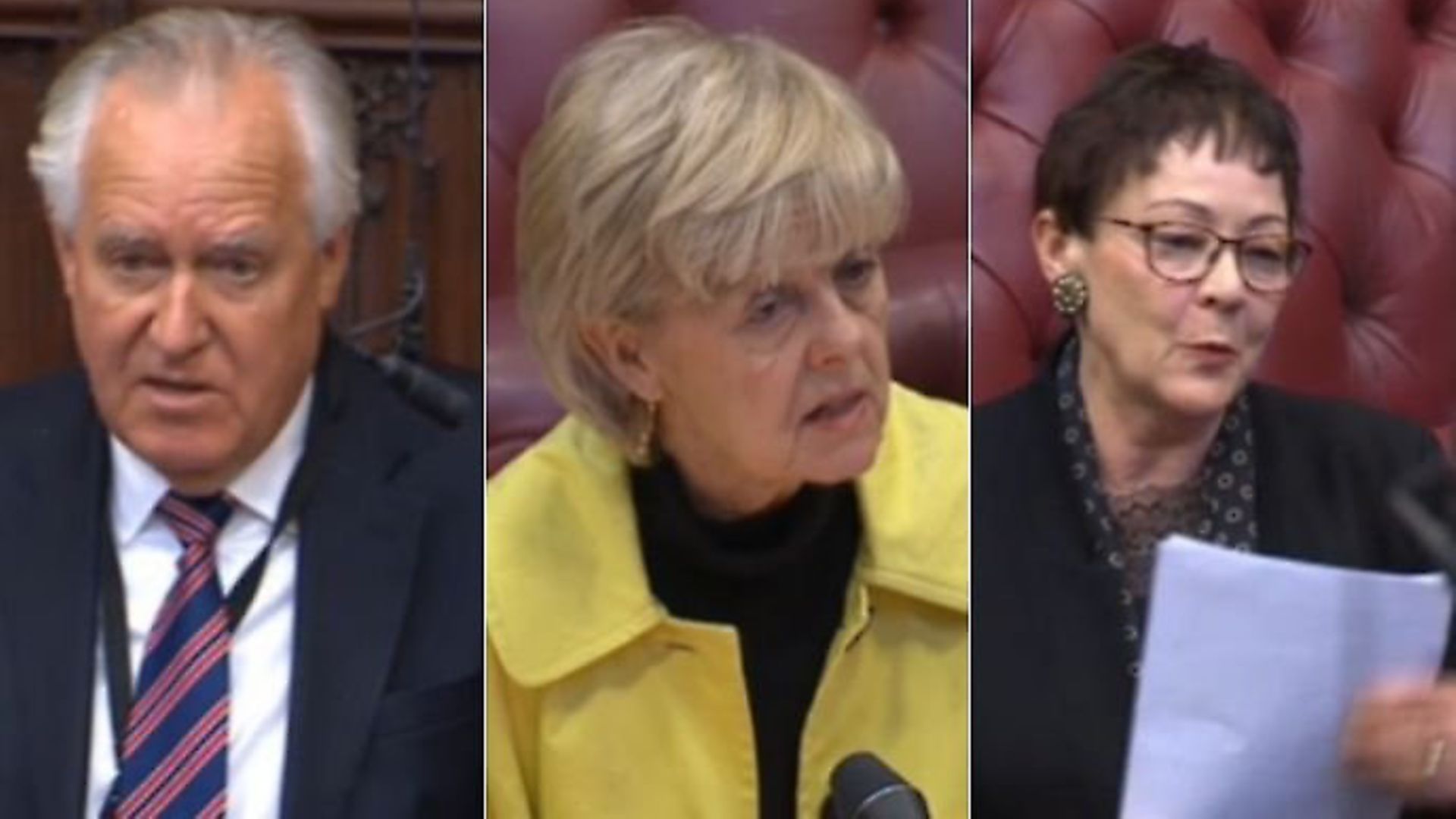
Peers in the House of Lords have warned of a ‘double whammy’ from the UK from a rushed Brexit and the coronavirus outbreak.
Former cabinet minister Lord Hain accused Boris Johnson of rushing towards an ‘extreme, hard Brexit’ since the Tories’ election victory in December.
The Labour peer warned this would compound the ‘profound economic damage’ already triggered by the coronavirus pandemic and result in unnecessary ‘self harm’.
Lord Hain urged the prime minister to think again about his decision to rule out an extension of trade talks with the EU beyond the end of the year.
‘In the light of the coronavirus catastrophe, the government must face down the hard Brexit zealots and reconsider the decision to exit the transition period at the end of the year come what may,’ Lord Hain said.
Have your say
Send your letters for publication to The New European by emailing letters@theneweuropean.co.uk and pick up an edition each Thursday for more comment and analysis. Find your nearest stockist here or subscribe to a print or digital edition for just £13. You can also join our readers' Facebook group to keep the discussion and debate going with thousands of fellow pro-Europeans.
‘Right from the thick of the coronavirus pandemic, the last thing this country will need by then is yet more disruption and instability triggered by the double whammy of a rushed Brexit, driven by dogma to meet an arbitrary deadline…’
In a debate on the government’s approach to negotiations on a future relationship with the EU, Lord Hain said since the election the government had been ‘rushing to an extreme, hard Brexit’.
He told peers: ‘This will simply compound the profound economic damage already triggered by the coronavirus into quite unnecessary and reckless national self-harm.’
Johnson’s decision to commit the UK to leaving the transition period by the end of December again raised the spectre of a no-deal, with ‘immensely damaging consequences’ for the country, Lord Hain added.
Baroness Hayter of Kentish Town called on ministers not to ‘shut out’ parliament from the negotiating process.
Lady Hayter said the ‘disparity between the opening gambits’ of the UK and the EU made clear why such a dialogue with parliamentarians was needed.
She condemned the tone of the government’s own paper outlining its stance as ‘mean-spirited’ and warned of a shift in its position, which could result in a no-deal.
Lib Dem peer Baroness Ludford said there was a wide gap between what the government had committed itself to and the policy now being pursued.
Lady Ludford said ‘hostility and resentment’ now characterised the approach of those who won the EU referendum, with a ‘dogmatic rejection of anything and everything remotely connected with the EU’.
Former diplomat and independent crossbencher Lord Hannay of Chiswick accused ministers of a ‘blatant disregard’ for what the UK had signed up to in the political declaration and warned they would bear a ‘heavy cost’ in lost trust by EU negotiators.
Lord Hannay said the government was ‘driving a coach and horses’ through the commitment to a ‘level playing field’ on fair competition.
But Tory Baroness Noakes welcomed the government’s plans and said she could not be more proud of the approach taken by ministers.
‘We’ve left behind us the servile acquiescence that characterised the first three years of negotiations with the EU,’ she said.
‘In its place we now have a confident government which really believes in our future outside the EU and which has the strong backing of the British people.’










